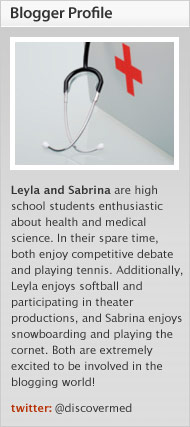« Prev Next »
Hi All,
In the light of Valentine's Day having just recently passed, I gave some thought to the idea of love and how it could relate to health, medicine, and this blog. While most people think love is a great thing--and it definitely is--I recently found out from a discussion with my mother that obsessive love can become a genuine clinical disorder. Take, for example, "erotomania." To talk about the meaning of the word, "eroto" as a root refers to some type of sexual desire, while "mania" indicated obsession; and that is exactly what erotomania is, not surprisingly.  Erotomania is a genuine delusion that one may have that someone who is somehow more socially important than they are will or is falling in love with them. In 2002 a research group conducted a study which came to the conclusion that, of the subjects which they observed for erotomania, 11 were women while only 4 were men. There were certain characteristics associated with people afflicted with this condition; they tended to not have a steady job, or be particularly close with many other people. A very high percentage--40%, to be exact--were directly related to someone with a psychiatric issue; however, interestingly enough, less than half of them appeared to have subjected their love interest to any form of "harassment." This disorder, while it may seem somewhat grave, is apparently easily treated and helped. While it does not seem to react well to treatment with actual medicines, cognitive behavioral therapy (therapy capitalizing on the malleability of the mind and a person's ability to change perspective) seemed to affect change in patients. I thought this disorder was particularly interesting because it never occured to me that a person could have a legitimate clinical obsession with another person. Talk about crazy in love!
Erotomania is a genuine delusion that one may have that someone who is somehow more socially important than they are will or is falling in love with them. In 2002 a research group conducted a study which came to the conclusion that, of the subjects which they observed for erotomania, 11 were women while only 4 were men. There were certain characteristics associated with people afflicted with this condition; they tended to not have a steady job, or be particularly close with many other people. A very high percentage--40%, to be exact--were directly related to someone with a psychiatric issue; however, interestingly enough, less than half of them appeared to have subjected their love interest to any form of "harassment." This disorder, while it may seem somewhat grave, is apparently easily treated and helped. While it does not seem to react well to treatment with actual medicines, cognitive behavioral therapy (therapy capitalizing on the malleability of the mind and a person's ability to change perspective) seemed to affect change in patients. I thought this disorder was particularly interesting because it never occured to me that a person could have a legitimate clinical obsession with another person. Talk about crazy in love!
http://www.ncbi.nlm.nih.gov/pubmed/11788912. Erotomania Revisited: Clinical Course and Treatment. Kennedy N, McDonough M, Kelly B, Berrios GE. 2002.






















